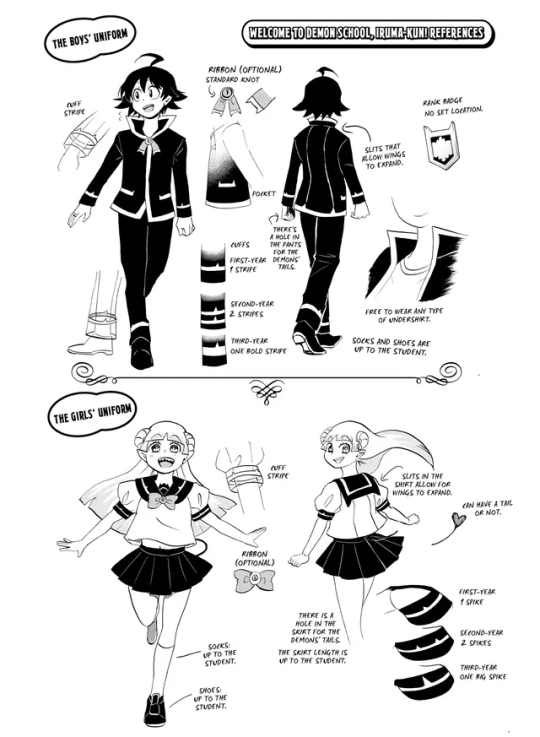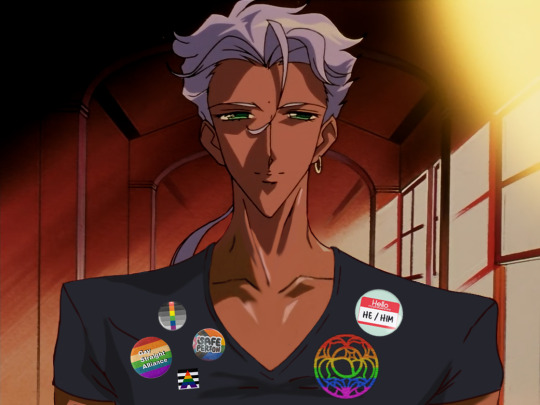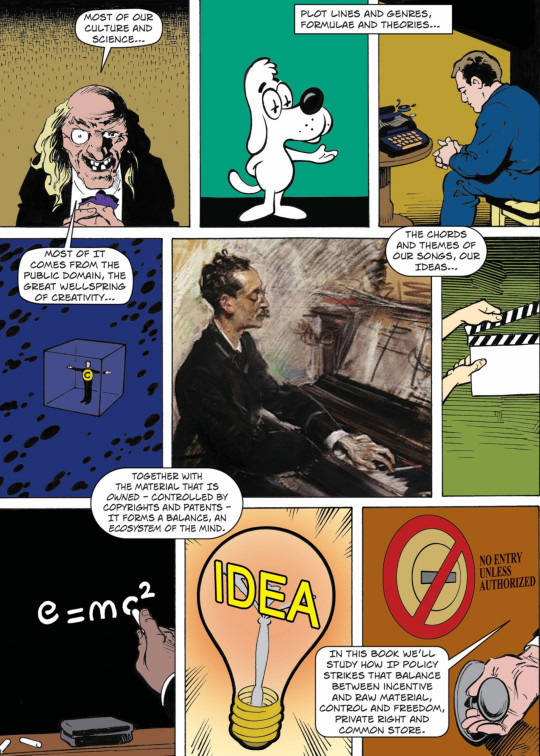#accessible schools
Explore tagged Tumblr posts
Text
I’ve been thinking about schools for the blind and schools for the deaf. And while I know most states have schools for one of the two, or have one school where both attend at the one campus, I knew that there wasn’t schools in every state. And so I decided to take a look to see which states currently have running schools, and which states don’t. So all together there’s 13 states without a school for either the blind, the deaf, or both.
Now I think it’s very important for each state have at least one of each school in order to help support these students who would do better to have this sort of education. Especially since they would feel belonging as most disabled students feel alienated from their peers in an abled school system.
I think that these states, without these schools, have a unique opportunity here. They could use this as a way to build a school not only with maximized accessibility, but to build these schools sustainably. Some of which would go hand in hand. Lightbulbs that wouldn’t need so much electricity? Could also be lightbulbs for students with light sensitivity. Just as an example.
Alaska, Connecticut, Delaware, Maine, Nebraska, Nevada, New Hampshire, New Jersey, Oregon, Rhode Island, South Dakota, Vermont, and Wyoming all have different different environments. Some states closer together have similar weather patterns that their school buildings could be similar. But this could also help showcase how each biome’s sustainable buildings are different. Alaska might need more wind turbines than Nevada while Nevada would need a larger rain water harvesting system than Alaska. Although in this time of bigger storms and unpredictable weather, as well as strong fires, it would be best to build these schools to withstand these conditions.
I’m talking schools having green rooftops with solar panels on top. The greenery helping cool down the panels, and the solar panels providing some shade from the harsh sun. I’m talking about having a food forest with pathways that are accessible by wheelchair. Same with greenhouses for the colder months. Or for the warmer states, a shade house for the too hot weather. A small area with a variety of houses, some completely built for wheelchair users, so students can learn how to live in a house by themselves or with roommates. (Again, built sustainably.) And for the pools it’ll be natural pools. Chlorine has been shown to raise rates of asthma. Having a natural pool is healthier for the lungs, the skin, and hair.
Ideally these schools would be built in cities with a good transportation system, as to help teach the students how to get around in a city. Perhaps even give the students, and staff, a discount on using these transportation services. And should the students go on outings, for say a restaurant, they could ask for the restaurant to get Braille menus and subtitles for any TVs.
As there is some overlap between states that have neither a blind school or a deaf school. I propose that these states would have them in one building on one campus. And in these schools tactile sign language would be taught for the blind deaf and the blind or deaf students who wish to learn. Because as of right now, as far as I’m aware, the only place that does this in the USA is in Seattle. No where else.
“But how would we get the staff to teach this if it’s so rare?” You may ask. Simple.
We pay people to learn tactile sign language.
And if we have staff that already know tactile sign, they would get paid more than staff who don’t. And the pay rate would be the same for staff who know ASL, and the same would go for staff who know Braille. This way, staff members would be more inclined to learn how to sign, to read Braille, to communicate with students and help them with their homework. And if we can’t pay the people to learn these things, then we can have their schooling paid for. I’m sure there’s some blind schools that even pay for classes for their staff should they want to become an Orientation and Mobility Instructor. When the staff member completes their course they work for the school as an O&M instructor until a specific time frame is up. (Example “we pay for your classes, and then you work with us for 5 years as this type of teacher. Then you can become a contractor.”)
I think that this is something that can be done. Not only would it give these students a unique experience, an opportunity to learn more, and be in a healthier environment, but it could be a standard for new schools. A proof of concept if you will. There are many schools around the world where it’s been built sustainably, reclaimed materials, or in unique ways for accessibility. (A blind school in India has different plants by the windows of different classes so students know that they’re in the science classroom if they smell lavender and so on.)
I’ll be honest, I would love these schools to exist. However I have no idea where I would have to go or who I have to talk to to get this ball rolling. I literally live in none of these states so it would be even harder. However, I still wish to share my idea so start this conversation. And perhaps someone would see this and go “wait. I can help with this.”
Thank you for taking the time to read this. I very much would like to talk to you all about what could be in these (theoretical) schools!
#solarpunk#sustainability#accessibility#sustainable architecture#schools#blind#deaf#low vision#hard of hearing#blind school#deaf school#USA#accessible architecture#sustainable schools#accessible schools#I just have a lot of thoughts and feelings about this#hope I wrote this well enough for the grand audience lol#and Ngl this isn’t even going into programs and buildings to help teach adults who are loosing their vision or their hearing
13 notes
·
View notes
Text

Best character btw
#trucyyyyy i love uuuuuu#if anything in her outfit is off its bc i originally drew this w/o any reference and had to go back & fix some stuff when i DID get refs#(< drew it first at school were i dont have access to the internet on my ipad & then fixed it when i got home & could grab refs)#anyway#trucy wright#minuki naruhodo#ace attorney#ace attorney apollo justice#gyakuten saiban#art#my art#xanders art#digital art#fan art
704 notes
·
View notes
Text
New Hole, Who Dis?
#New phone#Rapidly discorvering that there are many apps I no longer have access to as I used a now expired school email for them#Baka move!#Those of you who had me on discord shall have to contact me now through messanger pigeon
560 notes
·
View notes
Text

The World wasn’t a Christmas magazine. Edited by Anne Waldman for the first decade of its life and published by The Poetry Project at St. Marks Church In-the-Bowery in New York from 1967 to 2002, it included work by hundreds of writers within, adjacent to, and succeeding the New York School.
Some of the best-known writers of these generations published in The World, and some of them, it turns out, wrote on the topic of Christmas.
Make yourself a mug of hot chocolate, sit yourself within range of a Christmas tree, and enjoy the latest JSTOR Daily article on The World's Christmas poems. Happy holidays, and happy reading!
Image: From the cover of Issue 9 of The World, December 1967, via JSTOR.
#jstor#jstor daily#christmas#poetry#poems#the world magazine#the world#the poetry project#new york school#open access
421 notes
·
View notes
Text
the other thing about being disabled in academia is everyone is like "yeah we can't do much about the buildings they're old :/" as if "old" being a synonym for "inaccessible" isn't just a constant reminder that the people who built the school did not imagine that someday someone like me might study there
#mod felix#obviously there's some stuff that's way more accessible with like. electricity. like. i can get to the second floor. for example#but like. it's still possible to have. for example. ramps. if you as a culture value disabled people and their work#i miss when i was at a school where 'these are old buildings' meant 'these buildings were built for cows instead of people'#rather than 'these buildings were built for students just not students like you'#and of course this is another one that applies to many marginalized groups and like. many groups more than disabled people#in the sense that like. my school was also built to explicitly exclude people of color. for example#but i speak from my own experience and my own experience is characterized by ableism more than anything else#but like . again if you read this and you're like 'this feels like it applies to me in ways unrelated to disability'#well it probably does.
2K notes
·
View notes
Text

For the Laicion nation (aka, me and three other people)
I had this illustration commissioned (a big thank you to @lunehowls) for my werewolf AU Laicion fic (still a WIP).
The general pitch is as follows :
AU in which Laios never got to meet his sister again, putting his life on a whole other path, a more desperate one. A military deserter with barely a coin to his name, Laios hitches a ride on a boat to one of the elven continents, where he learns about magical tattoos that binds one’s soul to a wolf’s, effectively making them artificial werewolves. Illegal magic be damned, this feels like the answer to… everything.
In the process, he learns about the existence of an illegal fighting ring in one of the elven cities, where beastmen gladiators gather. Freshly tattooed and without anywhere else to go to, Laios decides to head there, where he meets Lycion, an elf and artificial werewolf gladiator. If they first bond over a simple shared meal, by spending time together (sharing the same room in the barracks, maybe the same bed? gasp) they find that they have a lot in common, notably a shared distaste for the body they were born in, a dysphoria partially remedied by becoming a werewolf.
They bond :)
NB: I commissioned another piece, go take a look :D
#dungeon meshi#laios touden#lycion#laicion#I'm heads deep in research regarding Ancient Rome gladiators... and loving it. Really fascinating stuff.#I bemoan the fact that most papers are locked behind a paywall (though I found one that gives a free pdf access)#(and no. Sci-hub is not an option. It's blocked in my country)#I'm also re-reading DunMeshi and taking notes to get a better grasp of Laios and Lycion as characters. Character studies if you will#and I still need to fully outline the fic#I know where I'm starting (struggling to choose a POV for that first chapter LOL) and where I'm ending so there's that#and a bunch of disconnected scenes (as we all do ahaha)#anyway. Doing all of this while studying for veterinary school. It's hard. I feel guilty whenever I'm not studying...#let's just say I don't expect the prep work for the fic to be ready before this summer (+ I need to finish the Kuro cosplay for Japan Expo)#hopefully; once it's done; I'll be able to set a schedule and write smoothly#werewolf#werewolf laios#rarepair#Fy posts
863 notes
·
View notes
Text
the two biggest pieces of advice that i would express to anyone thinking about grad school are
1) do not pay for grad school. i am dead serious on this one. this was the number one thing every single professor i had in undergrad expressed to me. going to a grad school that doesn’t offer tuition remission or teaching or any type of funding so you can complete the work you need to do is not worth going into debt for don’t do it don’t do it don’t do it because—
2) besides the obvious (the degree) grad school offer you two things (ideally they offer both); training or access. by training i mean rigorous high level hands on practice honing your skills in your chosen field; by access i mean connection to people/institutions/funding to help support whatever work or research you’re doing. (i think that at least in the arts broadly speaking, it is easier to find training than it is to gain access.) i think it’s extremely important to weigh out what you’re getting out of a specific program and decide not only what is more important to you but also what opportunities a school is offering you
#this is just my experience as someone who has very recently gone through it and now teaches at a very prestigious college and still has#student loan debt from undergrad (i went to a funded phd program)#part of the reason i picked the university i did for grad school was because i wanted access#i already knew i knew how to write (and had experience teaching); i wanted to work at the major regional theatres in town and i wanted a#slightly easier time getting my foot in the door. and it paid off. a lot#if i had gone to a different program my career might look very different
287 notes
·
View notes
Text
just a reminder that if an accessibility aid would help your quality of life, then you can use it.
this goes for everything from wheelchairs and noise cancelling headphones to fidget spinners and acupuncture rings. You don’t need a diagnosis to start accommodating yourself. Especially on the mobility side. Trust me when I say that the only people who want those are people who need them. you aren’t taking resources from others you are using them as intended. you don’t need anyone’s permission to make your own life easier.
#mobility aid#wheelchair#disability#noise cancelling headphones#mental health#accessibility#disability aids#accommodation#Obviously when it comes to work or school this stuff is harder but trust me it’s worth it
1K notes
·
View notes
Text
Media Preservation Monday
Yeah, yeah, as of this original post it's actually only Wednesday but hey, take this as a sign to take some initiative, and keep to it each Monday at minimum if you're actively writing!
What's Media Preservation Monday, you may ask?
MPM is your reminder to back up your writing at least three ways at least once a week or whenever you make major changes to your document(s).
Here's some incredibly easy ways to back up your writing:
One your Master Document(s), put a date on the file name, and every day you make changes, "Save As" the Document and change the date. Do this every time or day you make major changes.
Example: You start writing your Novella November Story on November 1st.
You name your master document "Novnov Project 11-01-2024"
The next day, you write some more, and at the end of your writing session, you go to save your document, and instead of simply hitting "Save" you choose "Save As" and save the new copy of the Document as "Novnov Project 11-02-2024".
You now have two copies of your project, and if you keep this up throughout the whole month, you will have a live snapshot of your writing progress.
Each day or after each major writing session, open up the folder containing your document, and back it up. The Easiest and simplest way to do this is to simply email it to yourself, but you can also create multiple backups by:
Save a copy of your dated Master Document(s) to different locations on your Hard-drive, to an external hard-drive, to a thumbdrive, etc.
If you're writing offline on a writing program like Libreoffice, upload a copy of your Master Document(s) to your preffered Cloud-based Writing Program of your choice.
Vice Versa: if you write on a Cloud-based writing program, download it to various offline-based locations.
Download the base document as well as download it as various ebook formats and send them to your ebook library on your phone or kindle or nook or reading app.
Make a personal discord server and upload the document/epub form of your Master Document(s) there [this is also a good way of making a kind of personal journal / diary etc]
Whatever you do, do not be complacent and assume nothing can happen to your writing. Back it up. Preserve it.
Don't have all of your hard work go down the drain because of one tiny unforeseen accident.
When it comes time to clean up your hardrive, always assume you don't have it backed up. Before deleting anything always take the time to copy it over to another physical drive or a cloud drive.
#media preservation monday#writing tips#writing advice#novella november#writing events#community events#don't lose everything because you're a kid in school with a school laptop#and the tech support people tell your parent to factory reset the laptop without explaining that will wipe everything#don't lose everything because a cat jumped on your computer desk and knocked your desktop to the ground#don't lose everything because someone tripped and threw a bucket of water over your computer#don't lose everything because you totally thought you have it saved in two locations and delete it only to realize that was all of it#I'm trying to think of more scenarios#don't lose everything because your computer got a virus and ransomeware encrypted all your documents#If you had to leave your home tomorrow without your computer would you have access to your writing?#If not BACK IT UP#It should be in at least two places on the cloud at minimum and preferably multiple places offline#as many backups as you can get
286 notes
·
View notes
Text
Okay, but let's talk for a second about accessibility in M!IK's Netherworld. First of all, I love, LOVE, that the characters in this manga are so heterogeneous in size and shape. I mean, look at MeiMei, they're as big as one of Amduscias's foot, and still taken very seriously :')

Tbh it kinda makes most other series look pretty boring - and I like it this way, the real world is heterogeneous and media should be to (imo). With that said, different shapes can be treated very differently, right? Say, think about making fat people pay for a bigger seat instead of making bigger seats where everyone is more comfy... Weird right? Specifically this panels really hit me:

It low-key sent me into a spiral, not gonna lie. "So, we are literal demons and technically we live in a ruthless world, but also we think about the needs of everybody and accomodate accordingly, because why wouldn't we" And that's not it! For instance, not all demons have tails, but all Babyls uniforms have holes for them, and who doesn't have one simply carries on with their life. (Also, the freedom to customize them... Top notch. And you can mix and match like Opera did, or wear a different one like Azz and Ameri, so no real binarism either ♡)

Honestly, if this is how the Netherworld is, I may just start to summon random demons and ask to be brought there, it's worth a chance if you ask me
#mairimashita! iruma kun#mairuma#manga#manga analysis#iruma suzuki#clara valac#valac#iruma#m!ik#welcome to demon school iruma kun#mairimashita iruma kun#welcome to demon school#accessibility#dali-sensei#amduscias#m!ik meimei
2K notes
·
View notes
Text
"A trial programme providing a free meal a day has yielded not just financial relief for households but also improved child nutrition and student outcomes such as attendance and focus.
The free school lunch initiative for children from poor or disadvantaged families was introduced by President-elect Prabowo Subianto and Vice-President-elect Gibran Rakabuming Raka as one of their key campaign promises. Mr Gibran is President Joko Widodo’s elder son...
The pair – who won the Feb 14 presidential election by a landslide and will be inaugurated in October – had in the lead-up to the polls pledged to offer free lunches and milk for students as well as nutritional aid to toddlers and pregnant women in a bid to lower the country’s stunting rate.
Over 20 per cent of Indonesian children under the age of five experienced stunted growth in 2022, according to the United Nations. Stunting, which is being too short for one’s age as a result of poor nutrition, can result in long-term development delays.
When fully implemented by 2029, the programme will cover 83.9 million beneficiaries across the world’s fourth-most-populous nation of nearly 280 million, and cost over 400 trillion rupiah (S$33.7 billion) a year – about 2 per cent of annual gross domestic product.
But on the ground, a trial that was first rolled out in January at 16 schools in Sukabumi, in West Java, has been warmly received by around 3,500 students, their parents and school leaders, who have seen positive changes.
For one thing, saving on the cost of lunches for four of her nine children has provided significant financial relief for Indonesian housewife Rofiati, 46.
Her husband, a teacher at an Islamic boarding school in Sukabumi, earns 2.5 million rupiah a month on average, and the free school meals have helped them save about 420,000 rupiah monthly, which she can put towards other household needs.
Her children do not usually have breakfast before school. Before the free lunch programme, her children would eat lunch only upon returning home from school. Lunch would usually consist of instant noodles, or dishes of vegetables, eggs, tempeh or salted fish.
“I am not worried any more because I know they will eat at school. They have more appetite as they eat together with their friends,” Ms Rofiati told The Straits Times, adding that her children’s appetites have improved and they also like the variety of the meals provided. In fact, her 11-year-old daughter has gained 4kg since the programme started.
Every day, students on the programme receive a lunch package worth 15,000 rupiah, containing rice, meat such as chicken, fish or beef, vegetables, fruit and milk.
At home, the family usually eats meat only once a week.
It is not just the financial savings that parents are happy about. Ms Depi Ratna Juwarti, who has two out of three children benefiting from the free lunches, has noticed other encouraging results.
“They rarely get sick now. They are more motivated to study and spend a longer time studying at night,” Ms Depi said.
Her eldest daughter, Adifa Alifiya Mahrain, 12, also has good reviews. “The food is always delicious and the menu changes every day. I always eat everything. It’s a lot of fun to eat together with my friends,” said Adifa, who hopes to become a paediatrician in the future.
Mr Shalahudin Sanusi, principal of Gelarsari Islamic primary school in Sukabumi, which is trialling the programme, said he has noticed that pupils have been able to concentrate better and understand lessons more.
He said the initiative has raised the attendance rate of its 110 pupils from 85 per cent to 95 per cent. “They eat modestly at home – mostly rice and salted fish. Rice and eggs are the best they can get,” he told ST. “Now, they are so excited, some even arrive in school at 6am, an hour before lessons start.”"
-via The Straits Times, May 18, 2024
#indonesia#school lunch#free school meals#school#childhood#nutrition#food insecurity#food access#good news#hope
339 notes
·
View notes
Text
POV Woke Akio just walked up to you and told you he's the new advisor for your school's GSA

Wokio leaving the school (he gives students rides home cause he's such a really cool and nice guy)

#i'm sorry#i am once again delivering to you some cursed content#also yeah that is a heteroflexible pride flag he is wearing#awful#putting him in modern contexts feels worse somehow#can you imagine akio with access to the internet#you know hed have a fucking tiktok and encourage students at the school to follow him#happy pride#akio ohtori#my post#revolutionary girl utena#rgu#shojou kakumei utena#sku#the meme bride#wokio
370 notes
·
View notes
Text
Clark lying on his bed, freshly back from dealing with the last forty emergencies. Sees the latest out of Gotham and just barely manages to control his strength enough to send Bruce a "you okay?" text with everything misspelled before proceeding to pass out, knowing the phone buzz will wake him up.
Bruce responds several hours later, with a "handled". And then another hour later, "What about you?"
Clark snorts, back from a warehouse fire and wondering how to stop the smell from spreading through his flat. "I'm good. As always."
"Liar."
Clark rolls his eyes, deleting a "Why do you bother asking" for "takes one to know one".
"Get some rest." Comes the annoyed, optimistically concerned reply.
"Yes boss." Clark mutters aloud as he types, "You too." hearing sirens in the distance and putting the suit back on. He can hear Bruce's alert and active heartbeat the whole time he's out, neither of them close to done even as morning rolls in.
#Ficlet#Born of sheer boredom and lack of access to my laptop#Which has been tragically locked in a locker at school that I tragically misplaced the key for#True story#Anyways#batman#bruce wayne#Superman#Clark kent#personal#Vaguely superbat#Because that's how I write these two by default lmao#fanfiction
159 notes
·
View notes
Text

highchoolers (and iori)
#thoughts: miyako and daisuke are chronic dresscode violators. miyako isnt allowed to wear a bandana or as many accessories as she does#daisuke usually wears tshirts instead of the button up and gets in constant trouble because of it#takeru's look is the most ordinary out of all of them because hes just happy to be here. usually unbuttons the blazer out of dysphoria tho#iori and ken go to different schools so they arent as accessible but they hang out very regularly#iori especially needs to be included because he's like. the universal little brother and feels abandoned easily#ken and hikari get really close in their hs years since they both struggle with depression and vent to eachother often#lastly i picked that iori screenshot to redraw cause it was cute he still retains his autistic flat expressiveness#.png#chock full of headcanons idgaf . transfem daisuke#digimon#digimon adventure#daisuke motomiya#davis motomiya#iori hida#cody hida#takeru takaishi#tk takaishi#hikari yagami#kari kamiya#miyako inoue#yolei inoue#sorey ken . next time
200 notes
·
View notes
Text
An open copyright casebook, featuring AI, Warhol and more

I'm coming to DEFCON! On Aug 9, I'm emceeing the EFF POKER TOURNAMENT (noon at the Horseshoe Poker Room), and appearing on the BRICKED AND ABANDONED panel (5PM, LVCC - L1 - HW1–11–01). On Aug 10, I'm giving a keynote called "DISENSHITTIFY OR DIE! How hackers can seize the means of computation and build a new, good internet that is hardened against our asshole bosses' insatiable horniness for enshittification" (noon, LVCC - L1 - HW1–11–01).

Few debates invite more uninformed commentary than "IP" – a loosely defined grab bag that regulates an ever-expaning sphere of our daily activities, despite the fact that almost no one, including senior executives in the entertainment industry, understands how it works.
Take reading a book. If the book arrives between two covers in the form of ink sprayed on compressed vegetable pulp, you don't need to understand the first thing about copyright to read it. But if that book arrives as a stream of bits in an app, those bits are just the thinnest scrim of scum atop a terminally polluted ocean of legalese.
At the bottom layer: the license "agreement" for your device itself – thousands of words of nonsense that bind you not to replace its software with another vendor's code, to use the company's own service depots, etc etc. This garbage novella of legalese implicates trademark law, copyright, patent, and "paracopyrights" like the anticircumvention rule defined by Section 1201 of the DMCA:
https://www.eff.org/press/releases/eff-lawsuit-takes-dmca-section-1201-research-and-technology-restrictions-violate
Then there's the store that sold you the ebook: it has its own soporific, cod-legalese nonsense that you must parse; this can be longer than the book itself, and it has been exquisitely designed by the world's best-paid, best-trained lawyer to liquefy the brains of anyone who attempts to read it. Nothing will save you once your brains start leaking out of the corners of your eyes, your nostrils and your ears – not even converting the text to a brilliant graphic novel:
https://memex.craphound.com/2017/03/03/terms-and-conditions-the-bloviating-cruft-of-the-itunes-eula-combined-with-extraordinary-comic-book-mashups/
Even having Bob Dylan sing these terms will not help you grasp them:
https://pluralistic.net/2020/10/25/musical-chairs/#subterranean-termsick-blues
The copyright nonsense that accompanies an ebook transcends mere Newtonian physics – it exists in a state of quantum superposition. For you, the buyer, the copyright nonsense appears as a license, which allows the seller to add terms and conditions that would be invalidated if the transaction were a conventional sale. But for the author who wrote that book, the copyright nonsense insists that what has taken place is a sale (which pays a 25% royalty) and not a license (a 50% revenue-share). Truly, only a being capable of surviving after being smeared across the multiverse can hope to embody these two states of being simultaneously:
https://pluralistic.net/2022/06/21/early-adopters/#heads-i-win
But the challenge isn't over yet. Once you have grasped the permissions and restrictions placed upon you by your device and the app that sold you the ebook, you still must brave the publisher's license terms for the ebook – the final boss that you must overcome with your last hit point and after you've burned all your magical items.
This is by no means unique to reading a book. This bites us on the job, too, at every level. The McDonald's employee who uses a third-party tool to diagnose the problems with the McFlurry machine is using a gadget whose mere existence constitutes a jailable felony:
https://pluralistic.net/2021/04/20/euthanize-rentier-enablers/#cold-war
Meanwhile, every single biotech researcher is secretly violating the patents that cover the entire suite of basic biotech procedures and techniques. Biotechnicians have a folk-belief in "patent fair use," a thing that doesn't exist, because they can't imagine that patent law would be so obnoxious as to make basic science into a legal minefield.
IP is a perfect storm: it touches everything we do, and no one understands it.
Or rather, almost no one understands it. A small coterie of lawyers have a perfectly fine grasp of IP law, but most of those lawyers are (very well!) paid to figure out how to use IP law to screw you over. But not every skilled IP lawyer is the enemy: a handful of brave freedom fighters, mostly working for nonprofits and universities, constitute a resistance against the creep of IP into every corner of our lives.
Two of my favorite IP freedom fighters are Jennifer Jenkins and James Boyle, who run the Duke Center for the Public Domain. They are a dynamic duo, world leading demystifiers of copyright and other esoterica. They are the creators of a pair of stunningly good, belly-achingly funny, and extremely informative graphic novels on the subject, starting with the 2008 Bound By Law, about fair use and film-making:
https://www.dukeupress.edu/Bound-by-Law/
And then the followup, THEFT! A History of Music:
https://web.law.duke.edu/musiccomic/
Both of which are open access – that is to say, free to download and share (you can also get handsome bound print editions made of real ink sprayed on real vegetable pulp!).
Beyond these books, Jenkins and Boyle publish the annual public domain roundups, cataloging the materials entering the public domain each January 1 (during the long interregnum when nothing entered the public domain, thanks to the Sonny Bono Copyright Extension Act, they published annual roundups of all the material that should be entering the public domain):
https://pluralistic.net/2023/12/20/em-oh-you-ess-ee/#sexytimes
This year saw Mickey Mouse entering the public domain, and Jenkins used that happy occasion as a springboard for a masterclass in copyright and trademark:
https://pluralistic.net/2023/12/15/mouse-liberation-front/#free-mickey
But for all that Jenkins and Boyle are law explainers, they are also law professors and as such, they are deeply engaged with minting of new lawyers. This is a hard job: it takes a lot of work to become a lawyer.
It also takes a lot of money to become a lawyer. Not only do law-schools charge nosebleed tuition, but the standard texts set by law-schools are eye-wateringly expensive. Boyle and Jenkins have no say over tuitions, but they have made a serious dent in the cost of those textbooks. A decade ago, the pair launched the first open IP law casebook: a free, superior alternative to the $160 standard text used to train every IP lawyer:
https://web.archive.org/web/20140923104648/https://web.law.duke.edu/cspd/openip/
But IP law is a moving target: it is devouring the world. Accordingly, the pair have produced new editions every couple of years, guaranteeing that their free IP law casebook isn't just the best text on the subject, it's also the most up-to-date. This week, they published the sixth edition:
https://web.law.duke.edu/cspd/openip/
The sixth edition of Intellectual Property: Law & the Information Society – Cases & Materials; An Open Casebook adds sections on the current legal controversies about AI, and analyzes blockbuster (and batshit) recent Supreme Court rulings like Vidal v Elster, Warhol v Goldsmith, and Jack Daniels v VIP Products. I'm also delighted that they chose to incorporate some of my essays on enshittification (did you know that my Pluralistic.net newsletter is licensed CC Attribution, meaning that you can reprint and even sell it without asking me?).
(On the subject of Creative Commons: Boyle helped found Creative Commons!)
Ten years ago, the Boyle/Jenkins open casebook kicked off a revolution in legal education, inspiring many legals scholars to create their own open legal resources. Today, many of the best legal texts are free (as in speech) and free (as in beer). Whether you want to learn about trademark, copyright, patents, information law or more, there's an open casebook for you:
https://pluralistic.net/2021/08/14/angels-and-demons/#owning-culture
The open access textbook movement is a stark contrast with the world of traditional textbooks, where a cartel of academic publishers are subjecting students to the scammiest gambits imaginable, like "inclusive access," which has raised the price of textbooks by 1,000%:
https://pluralistic.net/2021/10/07/markets-in-everything/#textbook-abuses
Meanwhile, Jenkins and Boyle keep working on this essential reference. The next time you're tempted to make a definitive statement about what IP permits – or prohibits – do yourself (and the world) a favor, and look it up. It won't cost you a cent, and I promise you you'll learn something.

Support me this summer on the Clarion Write-A-Thon and help raise money for the Clarion Science Fiction and Fantasy Writers' Workshop!

If you'd like an essay-formatted version of this post to read or share, here's a link to it on pluralistic.net, my surveillance-free, ad-free, tracker-free blog:
https://pluralistic.net/2024/07/30/open-and-shut-casebook/#stop-confusing-the-issue-with-relevant-facts

Image: Cryteria (modified) Jenkins and Boyle https://web.law.duke.edu/musiccomic/
CC BY-NC-SA 4.0 https://creativecommons.org/licenses/by-nc-sa/4.0/
#pluralistic#jennifer jenkins#james boyle#ip#law#law school#publishing#open access#scholarship#casebooks#copyright#copyfight#gen ai#ai#warhol
180 notes
·
View notes
Text

twelve hours until doom.
#my school gave me access to photoshop#their mistake#literally the first thing i've created with it#laugh#I SAID LAUGH#i'm coping#muses.mumbles#bsd#bungou stray dogs#bungo stray dogs#bsd s5#bsd s5 ep11#osamu dazai#dazai bsd#bsd spoilers#bsd manga#manga#bsd anime#bsd season 5
519 notes
·
View notes